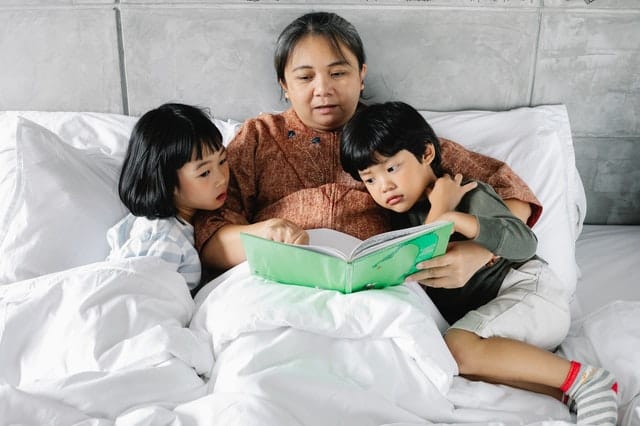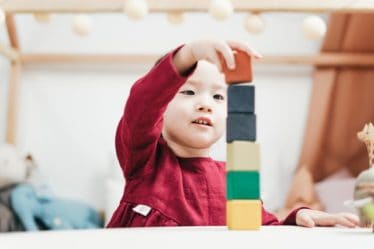
First published: 6 May 2021 @ 3:37 pm
If you want to encourage your child’s better brain development in the best way possible, there are three crucial habits you need to master. They are all relatively easy to do, but if you don’t do them, your child will suffer.
These habits are:
Being Sensitive and Responsive to Your Child
Your child’s brain develops best when you’re sensitive and responsive to her. The more sensitive and responsive you are, the more likely your child is to grow up feeling loved, safe, and secure.
Being sensitive means that you respond to your child’s feelings in a caring way. If she’s crying because she’s hurt herself, you comfort her.
When she wants your attention because she feels lonely or insecure, you give it to her. If she’s frustrated because she can’t do something, you help her.
Being responsive means that you pay attention to what your child is trying to tell you through words or actions—that is, by responding sensitively. If your child wants a drink of water, for example, he needs someone who will hear him say “water” and then get him some water; someone who just goes on talking while he continues drinking from his bottle isn’t being responsive.
When he says “Mama! Mama! Mama!” repeatedly as if he can think of nothing else (and often this is the case), someone who doesn’t stop and listen to him is not being responsive. Being sensitive and responsive to your child means giving her what she needs when she needs it.
You can’t just ignore her or talk over her or ignore her tears, because that won’t help her learn how to get what she needs.
Reading to your child every day
A child’s brain develops best when she is read to every day. It doesn’t matter whether you read a picture book or a storybook or the newspaper, as long as you do it every day.
Reading to your child isn’t just about teaching her how to read. It’s about giving her something that helps her brain develop in many other ways. For example, by listening to stories, your child learns how stories are put together and how they make sense.
She also learns what kinds of things happen in stories and what kinds of people live in them. But that’s not all reading does for your child.
When you read to her, she learns how language works, so that when she goes to school, she already knows some of the basics of grammar and spelling. In addition, when you read aloud with expression (which means changing your voice and using gestures), your child develops an ear for language so that she can begin to learn more complex sounds and words later on.
She also learns how spoken language works because you have used different tones of voice and expressions as you read aloud—so much so that if someone reads silently from a book with no expression at all, your child will probably lose interest. The biggest benefit of reading to your child, however, is that it’s fun.
It gives you both a chance to enjoy each other’s company and be silly together. Reading with expression also helps your child learn to listen and understand language, which is the basis for reading itself.
In addition, when you read to your child every day, she gets lots of exposure to stories that are both engaging and educational. And the more stories she hears, the more likely she is to want to read herself one day.
RELATED: 10 Signs That Your Child is a Genius
Playing with your child every day
A child’s brain develops best when she plays every day. This doesn’t mean that if you play with her every day she will become a genius or an athlete or a chess champion—although it wouldn’t hurt!
What it does mean is that when you play with your child every day, you help her brain develop in many different ways. Playing teaches her how things work in the world around her and how they interact with each other.
It also teaches her how things work in relation to herself—how objects relate to her body as well as how her body moves through space and interacts with objects. Playing teaches your child how to interact with other people.
In the process, she learns how to express her feelings and communicate with others—for example, by telling you what she wants or needs. Playing helps your child learn the basics of language and communication.
In fact, when you play with your child, you’re actually talking to her and teaching her how language works—for example, by telling her what to do and praising her when she does it right. As you can see, playing is a very important part of a child’s development because it helps her learn about the world around her and about herself as well.
When you play with your child every day, she gets lots of practice interacting with other people in a fun way that makes learning easy for both of you. And as long as playing is fun for both of you, it will be good for your child’s brain development!
If you have found this article helpful, please share it with your friends and family. Make sure to visit our blog, Mature Parent, and read our other articles on parenting for more helpful advice!



